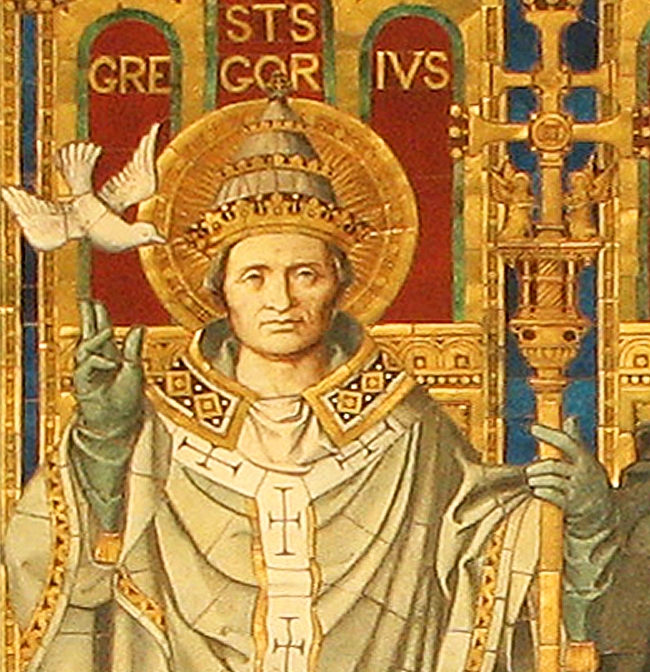A certain young lady that I know is intending to write a paper on, “Whether Aeneas is Pious?” I think this is a splendid topic and have been struggling with just why I think it is a splendid topic.
Here is the struggle:
On the one hand it seems perfectly obvious that Aeneas is Pious because one might say that his piety is a premiss upon which the Aeneid based. Every couple hundred lines Virgil makes certain to remind us that Aeneas is pious by simply using the word as an epithet
Praecipue pius Aeneas nunc acris Oronti,
nunc Amyci casum gemit et crudelia secum
fata Lyci, fortemque Gyan, fortemque Cloanthum.“Pius Aeneas especially groans now for keen Orontes, now for the fallen Amycus ….”
To draw a parallel with the Iliad, one would not ask “whether Achilles was wrathful?” If Achilles was not wrathful then the whole Iliad just kind of melts away into a little green pool of ooze, sort of like the way that the wicked witch of the west melted in The Wizard of Oz.
On the other hand, piety is an important virtue when it comes to civilization and Aeneas is an important figure in civilization, because he is the iconic founder of the Roman civilization- which is among the greatest civilizations known to man (another premiss that we will not question!)
That piety is a fundamental virtue in the very founding and sustaining of any civilization needs a little discussion. We might even suggest that Virgil is indicating it as the chief virtue from which civilization is born.
Is piety in fact the chief virtue that gives rise to civilization? Arguably it is. Civilization appears to spring from a continuance of practices of our fathers and ancestors. We build upon those who came before us and thus traditions spring up and give rise to rituals and a sense of something beyond ourselves.
Perhaps other virtues are involved as well – but piety seems to be all wrapped up in civilization and not just its founding but also its healthy continuance. We might ask “whether a civilization can long endure should its citizens lose their piety?” Frightening question.
So given the importance of this virtue and the importance of the Roman civilization (as a beacon of civilization for all) it is therefore significant to establish a clear idea of what piety is.
And Aeneas is also an important figurehead of this virtue insofar as he was a good old-fashioned pagan!
Christians might begin to think that important virtues like piety only come through baptism and no real virtue is possible without supernatural grace. Christians should not confuse what belongs to nature with what belongs to grace. And so Aeneas might be thought of as someone who represents what is possible by nature. He is a very important example for Christians.
But is he? In other words does Aeneas live up to a Christian idea of piety? Or does he show us how flawed human nature is without Christ? Is he Pious? Is piety even possible without Christ?
I have a hunch that many of my friends will say “No! Piety is not possible without Christ! There is no true piety without Christianity!”
and therefore it would seem to follow that “Civilization is not possible without Christianity,” although I don’t think these same friends would feel comfortable saying this especially from a historical standpoint.
And to make matters worse, we as Christians tend to identify the pious man with the holy man. But Aeneas does seem to involve himself in various situations which do not seem holy. One …Dido! Two…his apparently unmerciful stance towards poor Turnus!
But Saint Gregory says that
“piety fills the inmost recesses of the heart with works of mercy”
Hence the struggle. Was Aeneas Pious?
Important question?






Hooray! Thank you for this blog post, Mr. Langley!
No
No? Well…I think this needs just a little explanation. Please?
The Aeneid is a work of Augustan propaganda
Well, if we assume you are correct about that (for the sake of the argument only), does it follow that it cannot therefore ingeniously portray a man marked by piety?
The point is that Virgilius was not trying to portray perfect piety he was trying to glorify what Caesar Augustus promoted as the ideal roman virtues. it is just a story and not a virtues manual since Aeneas is not going to help teach people to be really pious because Augustus’ intention in promoting piety and domestic virtues were to make the population of Rome docile and obedient to him despite that he came to power as a tyrant. Also, according to true Christianity no virtue is possible without supernatural grace and your St. Augustine says that no pagans who seemed virtuous really were.
also I object to the idea that piety is the root of civilization. I think that civilization needs the ideas of people in the past but it has to be like science willing to discard things from the past and not reverential but critical. Civilization is a term we use for an advanced society which advances because of science and technological developments which let people live more freely and without [starving] or danger from violence. So it is innovation not piety which moves a society forward.
I think what you are saying about piety applies more to cultural heritage than civilization, because barbaric tribes have more piety than many civilized countries and modern historians recognize the unique cultural value of every people nowadays
Ted, thank you for your response! You make a number of points which certainly do run counter to my “habitual” view of what Virgil is doing – but with which I do not wholly disagree.
For example I think I am ready to take your word about the motivations that the “Augustan regime” (through Maecenas) had in “sponsoring” Virgil in his writing of the Aeneid. In other words perhaps it is true that Virgil’s work fit very well into an ulterior scheme to “create” a legend of Rome’s founding which connected Augustus in a very favorable light to the divine founding of Rome etc. And therefore, as you suggest, the Aeneid might be criticized as a work of “propaganda.” I will not deny that there is some truth to this.
I also agree with you when you assert that St. Augustine teaches that piety, and all virtue is something that is fulfilled and ultimately authentic when it is understood as referring to the God of the Christians. In other words “piety,” is not defined as a reverence for false gods.
On the other hand, I would hold that the reason why the Aeneid, along with any work that we might agree is included in the “Great Books” canon, is great- is precisely because the work transcends the particular and specific historical circumstances that were the immediate causes of its production.
I would assert that even Virgil’s genius was demonstrated in this- that he managed to write a work that contained universal appeal – or universal truth despite the immediate objectives of the Augustan regime that sponsored him.
I guess this is what awes me about Virgil’s portrayal of piety, that it appears to be identical on a pagan level with the Christian notion of piety.
St. Thomas Aquinas writes about piety in the Summa “Whether piety extends to a particular individual,” he shows that the virtue of piety is “respect and reverence for God, one’s country and allies, and one’s parents
and relations.”
In this respect one might argue that Aeneas fits the bill perfectly.
We are left thinking that if Virgil managed to describe piety, without the aid of grace, in the context of the gods of the pagans- how much more should the Christian fulfill this definition with respect to the true God.
I had better leave off here admitting that I am only addressing a few of the points that you have made- but am looking forward to continuing the discussion concerning your points about what civilization consists in.
I look forward to sharing this interchange with the young lady who is writing her paper on the subject. This will certainly help to deepen her awareness of the contrariety of views about the Aeneid!
I thought that the question was if it matters if Aeneas fits the bill or not which it sounds like you are just assuming. it seems to me that it is more worthwihle to study the Aeneid to understand Roman Augustan constructs of “virtue” and “piety” in a historical sense then to try to pretend Virgilius was a Christian of some sort like the mediaevals did ignorantly. and I contine to stand by my objections to your conservatist philosophy of human history.
I think you may have forgotten about this comment thread
Thanks for the reminder!
My Latin class just finished the Aeneid and are taking the AP Latin test tomorrow. So Aeneas has been uppermost in our minds for several weeks now.
I have been also thinking about the virtue of piety a good deal as well.
Piety would appear to be some sort of reverence or respect for those things which are the sources of our existence or being – like God, parents and country. Whether pagan or Christian “pietas” requires man to render some sort of return – in justice- for what he has been given. This return is regulated by the virtue of piety. It is a plain old good habit that makes a person able to fulfill the requirements of justice easily, well and joyfully.
In my view Aeneas embodied this virtue extraordinarily. Granted that there is no virtue which is directed at false gods- nonetheless, Aeneas at least embodied Pietas in a manner that was forgivable for pre-Christian humanity.